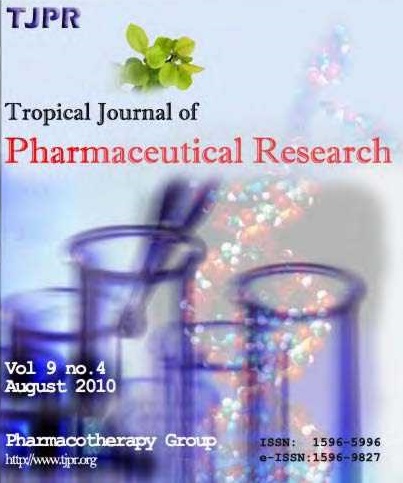右美托咪定防治剖宫产术后术后寒战的疗效观察
IF 0.6
4区 医学
Q4 PHARMACOLOGY & PHARMACY
引用次数: 0
摘要
目的:评价右美托咪定预防和治疗剖宫产术中麻醉后寒战的疗效。方法:选取2022年3月~ 12月剖宫产麻醉孕妇144例,随机分为研究组(n = 72)和对照组(n = 72)。孕妇给予脊髓-硬膜外联合麻醉。分娩后,研究组给予右美托咪定,对照组给予生理盐水。根据以下标准给药:术中输注、阿托品用量、麻黄碱用量、术中出血、术中剂量、平均动脉压、心率、血氧饱和度、寒战发生率、镇静评分。记录两组患者不良反应发生情况并进行比较。结果:两组患者术中输液量、出血量、阿托品和麻黄碱用量、脊髓麻醉剂量等差异无统计学意义(p >0.05)。治疗后10 min,研究组平均动脉压、心率、麻醉后寒颤发生率均低于对照组,术后镇静评分高于对照组。与对照组相比,研究组妊娠相关不良反应发生率略高,但差异无统计学意义。结论:右美托咪定防治剖宫产术后寒战有较好的疗效。然而,在将其应用于临床实践之前,还需要进一步的临床试验。本文章由计算机程序翻译,如有差异,请以英文原文为准。
Efficacy of dexmedetomidine in the prevention and treatment of postanesthetic shivering after cesarean section
Purpose: To assess the efficacy of dexmedetomidine in the prevention and treatment of postanesthetic shivering in cesarean section.Methods: A total of 144 pregnant women who underwent anesthesia for cesarean section between March and December 2022 were randomly divided into the study group (n = 72) and control group (n = 72). The pregnant women were given combined spinal-epidural anesthesia. Following childbirth, those in the study group were given dexmedetomidine, while those in the control group were given normalsaline. The dose of spinal anesthesia was administered based on the following criteria: intraoperative infusion, atropine usage, ephedrine usage, intraoperative bleeding, intraoperative dosage, mean arterial pressure, heart rate, blood oxygen saturation, incidence of shivering, and sedation score. Incidence of adverse reactions were recorded and compared between the two groups.Results: Intraoperative infusion volume, bleeding volume, levels of atropine and ephedrine usage, and spinal anesthesia dose were similar between the two groups (p > 0.05). At 10 min post-treatment, the study group had lower mean arterial pressure, heart rate and incidence of postanesthetic shivering, as well as higher postoperative sedation score than the control group. Compared with the control group, the study group had slightly higher incidence of pregnancy-related adverse reactions, but the difference was non-significant.Conclusion: Dexmedetomidine has good efficacy in preventing and treating postanesthetic shivering in cesarean section patients. However, further clinical trials are required prior to its adoption in clinical practice.
求助全文
通过发布文献求助,成功后即可免费获取论文全文。
去求助
来源期刊
CiteScore
1.00
自引率
33.30%
发文量
490
审稿时长
4-8 weeks
期刊介绍:
We seek to encourage pharmaceutical and allied research of tropical and international relevance and to foster multidisciplinary research and collaboration among scientists, the pharmaceutical industry and the healthcare professionals.
We publish articles in pharmaceutical sciences and related disciplines (including biotechnology, cell and molecular biology, drug utilization including adverse drug events, medical and other life sciences, and related engineering fields). Although primarily devoted to original research papers, we welcome reviews on current topics of special interest and relevance.

 求助内容:
求助内容: 应助结果提醒方式:
应助结果提醒方式:


